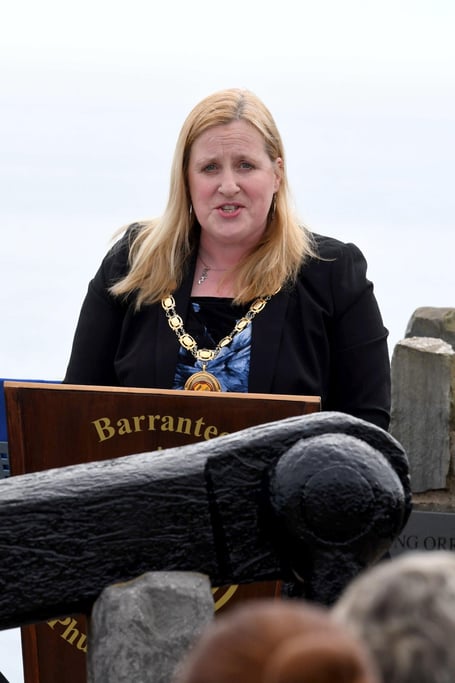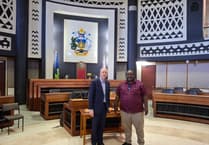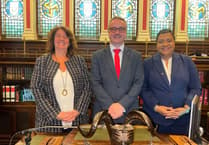This column was first published in the Isle of Man Examiner of April 5, 2020.
One of the roles I have taken on since being elected is as a member of the Department of the Environment, Food and Agriculture’s political team, with delegated responsibility for the Environment Directorate.
One of my roles is to look at the designation of Areas of Special Scientific Interest or ASSIs.
The Isle of Man currently has 23 ASSIs with some more areas due to be designated soon. However, I’ve been discovering that there is very public little understanding about what ASSIs are for and why they are important, and for some landowners there is very little pride in being the guardian of one of these sites.
An ASSI is a land-based site that is considered to have special plants, animals or geological features.
DEFA scientists are responsible for identifying the special features of a site and have to justify why any proposed site should be protected.
The ASSI designation safeguards the site from damage. It doesn’t mean that the landowner can’t do anything with the site, but it does mean that the landowner needs to check with DEFA before doing anything that might damage the site.
For example, the timing of grass cutting on a site might have a huge impact on a particular wild flower, so DEFA would offer a management agreement to the landowner to advise on when to mow.
In deciding whether a site should become an ASSI, wildlife scientists will look at how rare any plants or animals on the site are, both in a Manx context and internationally.
They may look at how vulnerable the site is to damage, long-term land use patterns and how large the site is.
Boundaries for the ASSI designation may cross ownership boundaries and can cover privately- or publicly-owned land. Much of the island’s native biodiversity is found in semi-natural habitats i.e. those that have been shaped by human activity. In fact some of them exist because of human activity, so it’s important for the long term future of the site that the human impact on the site is maintained.
DEFA is able to provide grant funding towards activities that maintain an ASSI.
I think the aspect that has really surprised me is that some landowners view having an ASSI as a terrible millstone round their neck, rather than feeling some pride that they are the guardians of a piece of land deemed to be of national scientific importance.
The designation gives the landowner access to some incredibly experienced wildlife scientists who can provide information on managing the site to preserve the special features.
We all have such a fleetingly short time on this planet and my view is that we are all just temporary guardians for future generations.
So, whilst I understand a little of the frustration that ‘someone else’ has to be consulted before you do something to a site, I think that needs to be put in context.
ASSI designations are not assigned to keep DEFA officers in work (in fact we probably don’t have enough scientists working in this area). ASSIs are assigned because that site is special, nationally and internationally.
As a landowner of an ASSI, you are being trusted by the whole community to look after that special place.
If it were me, I’d want to tell everyone I met how my ASSI was deemed to be so important and how the continued survival of that site depended on decisions and actions that I could make.
I’d want to brag about the responsibility.
In some ways I understand the reluctance that landowners have but it really isn’t about DEFA telling you how to manage your land.
DEFA is acting as a guardian for the special plants and animals that live there.
While a boggy, peaty swamp might seem like it needs bulldozing to you, the ecologists will tell you about the birds that nest there, the insects that breed there and the orchids that grow in just those conditions.
DEFA officers are on hand as subject experts to help you manage the site so that these features are saved for future generations.
I think DEFA should be seen in the role of a critical friend rather than any sort of enemy, and ASSIs are something to be proud of.


.jpeg?width=209&height=140&crop=209:145,smart&quality=75)


Comments
This article has no comments yet. Be the first to leave a comment.